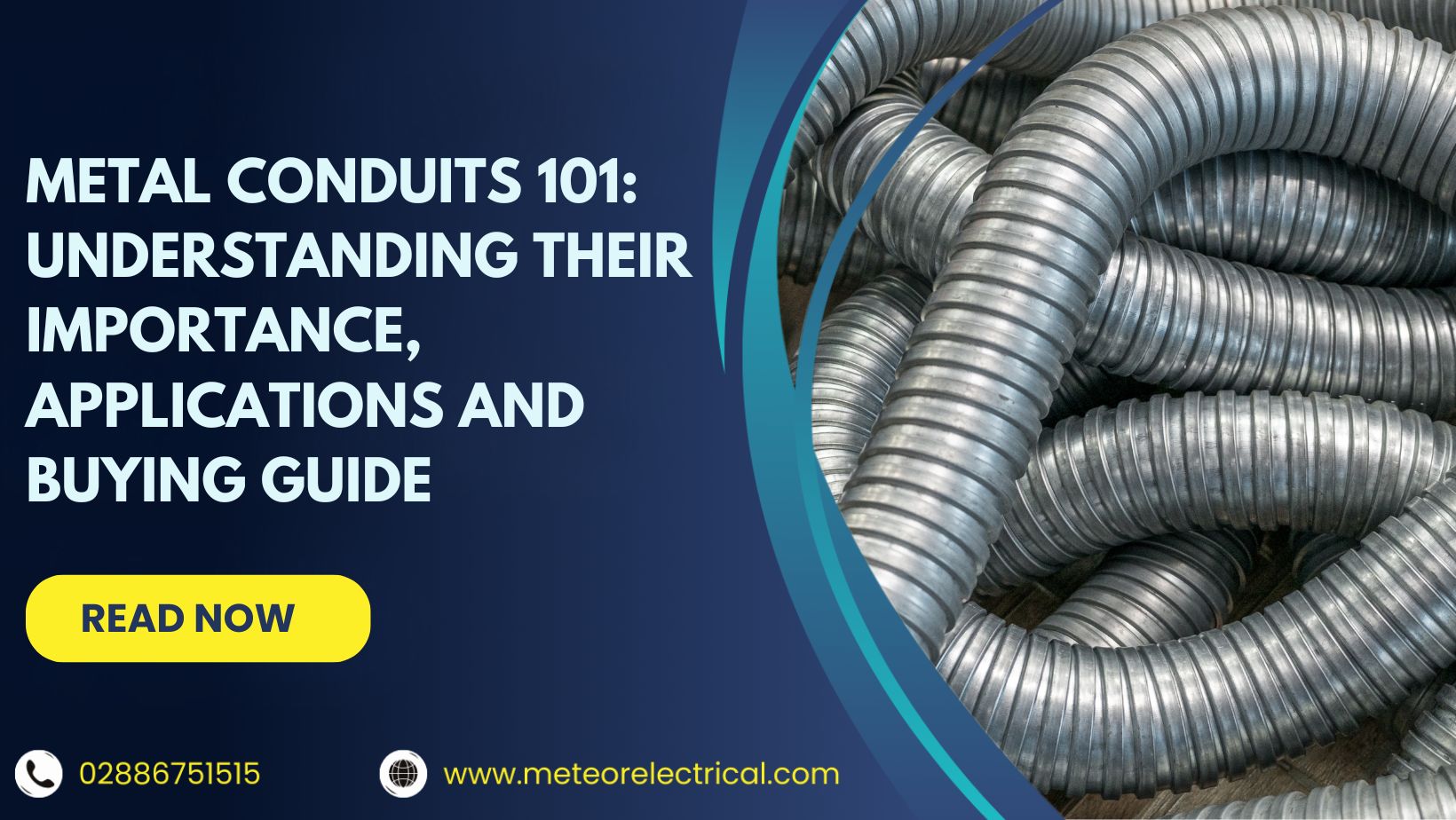Metal Conduits 101: Understanding Their Importance, Applications and Buying Guide
Metal Conduits 101: Understanding Their Importance, Applications and Buying Guide
Choosing the right metal cable conduit is crucial for ensuring the safety, durability, and efficiency of your electrical installations. Whether you're working on a residential renovation or an industrial project, metal conduits offer superior protection against physical damage, fire, moisture, and electromagnetic interference. This guide will help you understand the different types of metal conduits, their applications, benefits, and how to make the best choice for your specific needs.
Why Choose Metal Cable Conduits?
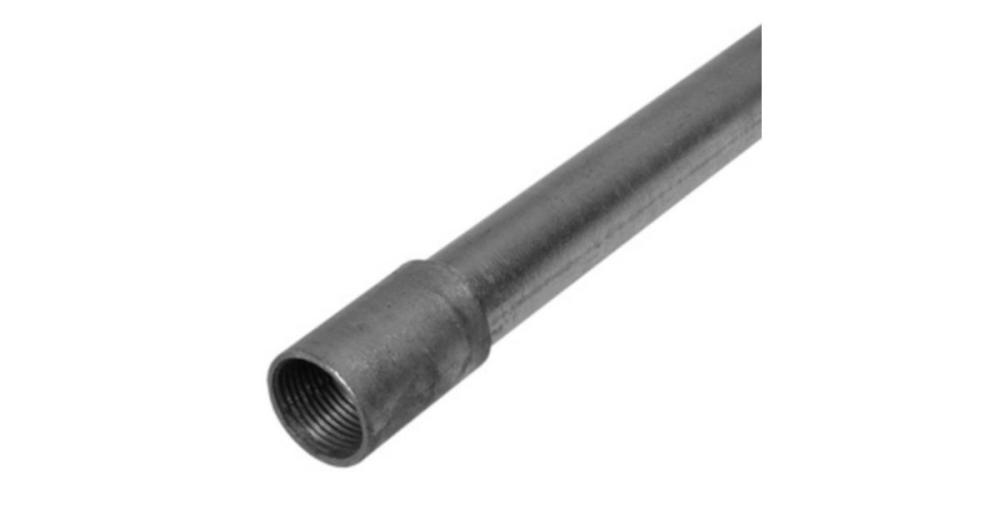
When it comes to safeguarding electrical wiring, metal cable conduits stand out for their robustness and long-term reliability. Unlike non-metallic options, metal conduits for electrical wiring provide excellent mechanical strength, making them ideal for high-risk environments. They are commonly used in both exposed and concealed installations across residential, commercial, and industrial settings.
Superior Protection and Durability
One of the primary advantages of using rigid metal conduit systems is their ability to protect wires from impact, crushing, and environmental hazards. Made from materials like galvanised steel or aluminium, these conduits resist corrosion and can withstand extreme temperatures. For instance, galvanised rigid conduit (GRC) is often used in industrial areas where exposure to chemicals and moisture is common, thanks to its zinc coating that prevents rust.
Built-in Grounding Capability
Another key benefit is that metal conduits can serve as a grounding path for electrical systems. This eliminates the need for a separate grounding wire in many installations, simplifying the setup and reducing material costs. According to the BS 7671 (IET Wiring Regulations), metallic conduits are permitted to act as equipment grounding conductors when properly installed.
Resistance to Fire and EMI
Metal conduits offer high fire resistance, making them suitable for areas prone to high heat or fire hazards. They also help reduce electromagnetic interference (EMI), which is critical in environments with sensitive electronic equipment. This shielding effect ensures stable signal transmission in data centers, hospitals, and industrial control systems.
Common Applications of Metal Conduits
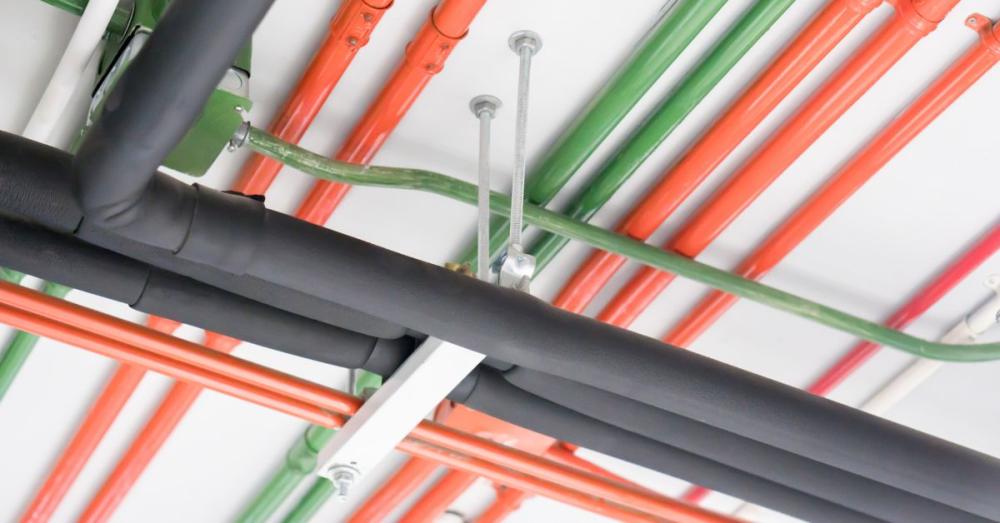
Commercial and Industrial Buildings
In commercial and industrial applications, intermediate metal conduit (IMC) and electrical metallic tubing (EMT) are widely used due to their balance of strength, cost, and ease of installation. IMC is slightly lighter than rigid metal conduit (RMC) but still offers strong protection, making it ideal for use in ceilings, walls, and underground encasement. EMT, being thin-walled and lightweight, is commonly found in office buildings and retail spaces where wiring runs are exposed but not subject to heavy physical stress.
Residential Installations
For homes, EMT conduit is a popular choice for indoor wiring. It's easy to bend and install, requiring only basic tools. It's often used in garages, basements, and utility rooms where wires need protection from accidental damage. However, it should not be used in areas prone to physical impact or moisture unless properly sealed.
Outdoor and Hazardous Environments
In outdoor applications, liquid-tight flexible metal conduit (LFMC) is preferred for connecting air conditioning units, pumps, and outdoor lighting. LFMC features a waterproof PVC jacket over a spiral-wound metal core, making it resistant to moisture, oil, and UV exposure. In hazardous locations such as chemical plants or marine environments, stainless steel conduit or aluminium conduit is recommended due to their superior corrosion resistance.
Types of Metal Cable Conduits
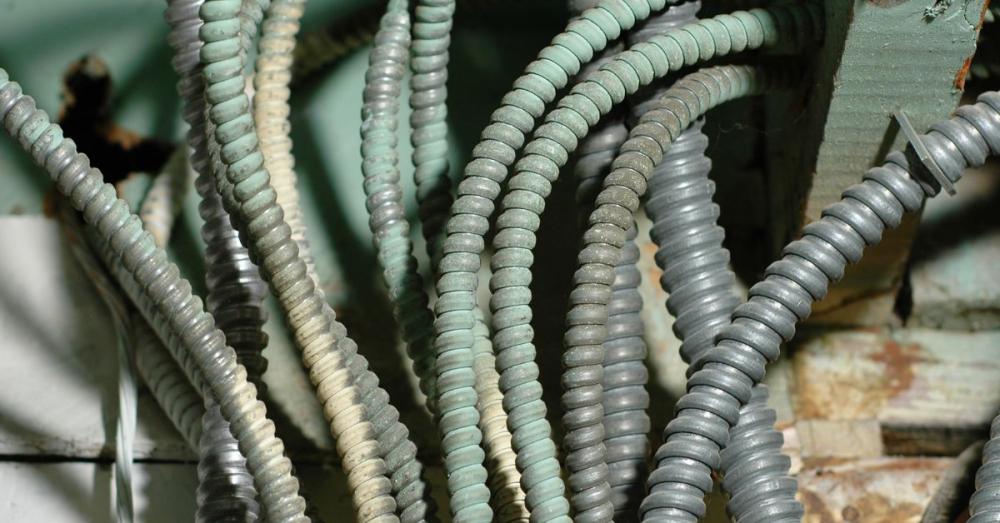
Understanding the different types of metal conduits is essential for selecting the right one for your project.
1. Rigid Metal Conduit (RMC)
RMC is the heaviest and strongest type of metal conduit, made from thick-walled steel or aluminium. It's designed for maximum protection in industrial and outdoor settings. RMC is threaded at the ends for secure connections and is often used in direct burial applications or embedded in concrete. While highly durable, it is more expensive and labor-intensive to install compared to other types.
2. Intermediate Metal Conduit (IMC)
IMC is a lighter version of RMC, with thinner walls but similar strength. It offers a cost-effective alternative for applications that don't require the full protection of RMC. IMC is available in both threaded and unthreaded forms and is widely used in commercial construction.
3. Electrical Metallic Tubing (EMT)
EMT is a thin-walled conduit made of coated steel or aluminium. It's lightweight, easy to bend, and joined using compression fittings or set screws. EMT is commonly used in residential and commercial buildings for indoor wiring. However, it is not suitable for outdoor or wet locations unless properly protected.
4. Flexible Metal Conduit (FMC)
FMC is made from interlocked steel strips, allowing it to bend easily around obstacles. It's ideal for short runs between fixed conduit ends and moving equipment, such as motors or machinery. However, standard FMC is not liquid-tight and should be used in dry locations only.
5. Liquid-Tight Flexible Metal Conduit (LFMC)
LFMC is similar to FMC but features a waterproof PVC or nylon jacket. This makes it suitable for wet or oily environments, including outdoor equipment, industrial machinery, and marine applications. It provides both flexibility and environmental protection.
Source - GSH Electrical
How to Choose the Right Metal Conduit
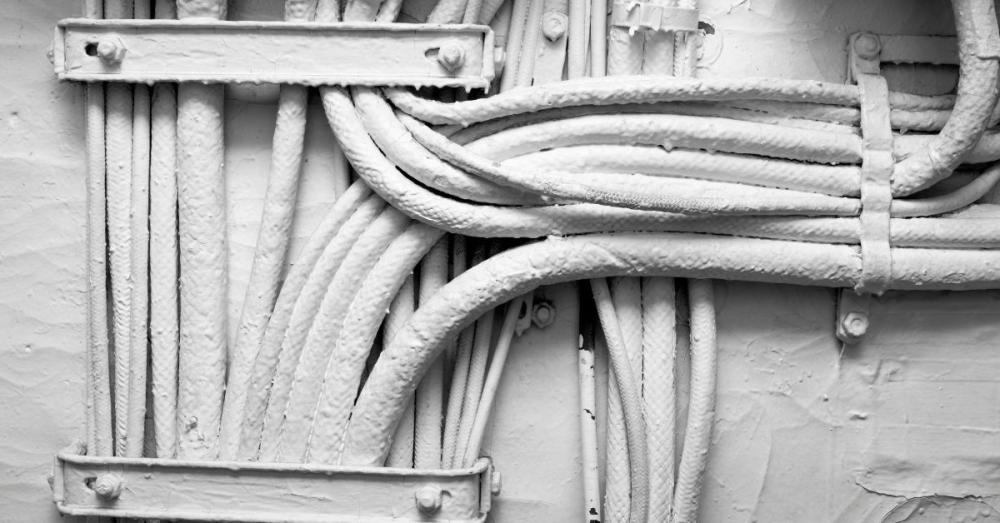
1. Consider Installation Requirements
The method of installation plays a major role in conduit selection. For straight runs and exposed walls, rigid conduits like RMC or IMC are ideal. For tight spaces or areas with multiple bends, flexible conduits like FMC or LFMC offer better adaptability. If the conduit will be buried or encased in concrete, ensure it is rated for such use and compatible with local building codes.
2. Evaluate Environmental Hazards
Assess the environment where the conduit will be installed. In corrosive areas like chemical plants or coastal regions, stainless steel or aluminium conduits are recommended. For wet locations, LFMC is the best choice. In high-temperature environments, avoid PVC-jacketed conduits and opt for metal-only variants.
3. Balance Cost and Labor
While metal conduits offer long-term durability, they can be more expensive upfront. EMT and IMC provide a good balance between cost and performance for most applications. Consider both material and labor costs—thicker conduits require more time and specialized tools to install, increasing overall project expenses.
4. Check Local Codes and Standards
Always consult the BS 7671 (IET Wiring Regulations) and local regulations before selecting a conduit type. Compliance ensures safety and avoids costly rework.
Top Metal Conduit Products from Meteor Electrical
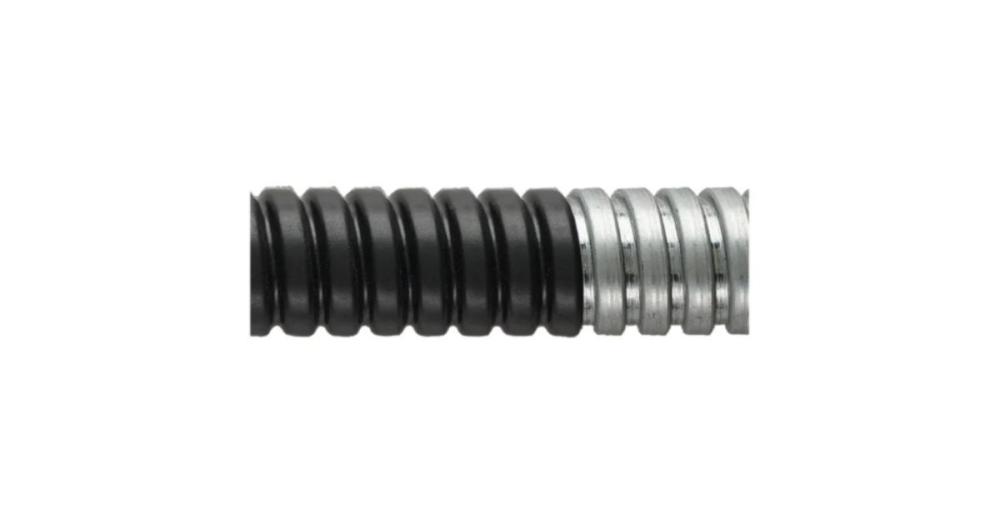
For high-quality metal cable conduits, Meteor Electrical offers a wide range of products to suit various applications. Their selection includes rigid, flexible, and galvanised options, ensuring durability and compliance with safety standards.
1. 25mm Galvanised Steel Conduit
The 25mm galvanised steel conduit is a top choice for rigid installations. Its hot-dip galvanization provides excellent corrosion resistance, making it ideal for both indoor and outdoor use. The smooth interior surface allows for easy wire pulling, reducing installation time.
2. Deligo PVC-Coated Flexible Conduit
For applications requiring flexibility and weather resistance, the Deligo PVC-coated steel flexible conduit is a reliable option. The PVC sheath adds an extra layer of protection against moisture and UV radiation, making it perfect for outdoor and industrial use.
Conclusion: Secure Your Wiring with Meteor Electrical
Investing in high-quality metal cable conduits ensures the safety, longevity, and efficiency of your electrical systems. Whether you're tackling a small home project or a large industrial installation, choosing the right conduit type is essential. From rigid metal conduit for outdoor protection to flexible metal conduit for dynamic environments, the options are vast and application-specific.
For trusted, durable, and code-compliant solutions, visit Meteor Electrical today. Explore their full range of metal conduits, fittings, and accessories to build a robust and future-proof electrical system.
Get a free quote now and let experts guide you to the perfect solution for your needs.
FAQs
1. What is the difference between EMT and RMC?
EMT (Electrical Metallic Tubing) is thin-walled and lightweight, used primarily in indoor commercial and residential settings. RMC (Rigid Metal Conduit) is thick-walled and heavy-duty, designed for industrial and outdoor applications requiring maximum protection.headsupb2b
2. Can metal conduits be used underground?
Yes, RMC, IMC, and some types of EMT can be used underground if they are properly rated and installed. They must be protected from corrosion and comply with local electrical codes.headsupb2b
3. Do metal conduits need a separate grounding wire?
In most cases, metal conduits can serve as the grounding path, eliminating the need for a separate grounding conductor. However, this depends on the conduit type, installation method, and local code requirements.headsupb2b
4. Which metal conduit is best for outdoor use?
Liquid-tight flexible metal conduit (LFMC) is ideal for outdoor use due to its waterproof jacket. For rigid outdoor installations, galvanised rigid conduit (GRC) or PVC-coated steel conduit offers excellent durability and corrosion resistance.headsupb2b
5. How do I install metal conduit?
Metal conduit installation involves cutting, bending, and securing the tubing using appropriate fittings. Rigid conduits require threading and set screws, while EMT uses clamp-style connectors. Always follow NEC guidelines and use proper tools for safe and effective installation.

